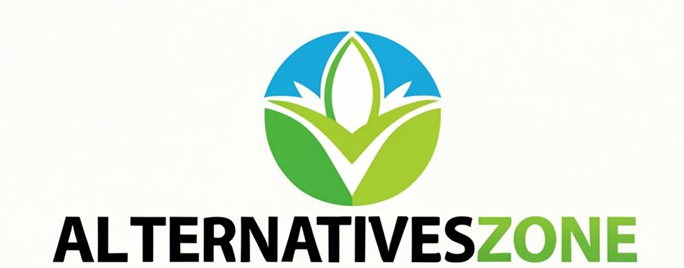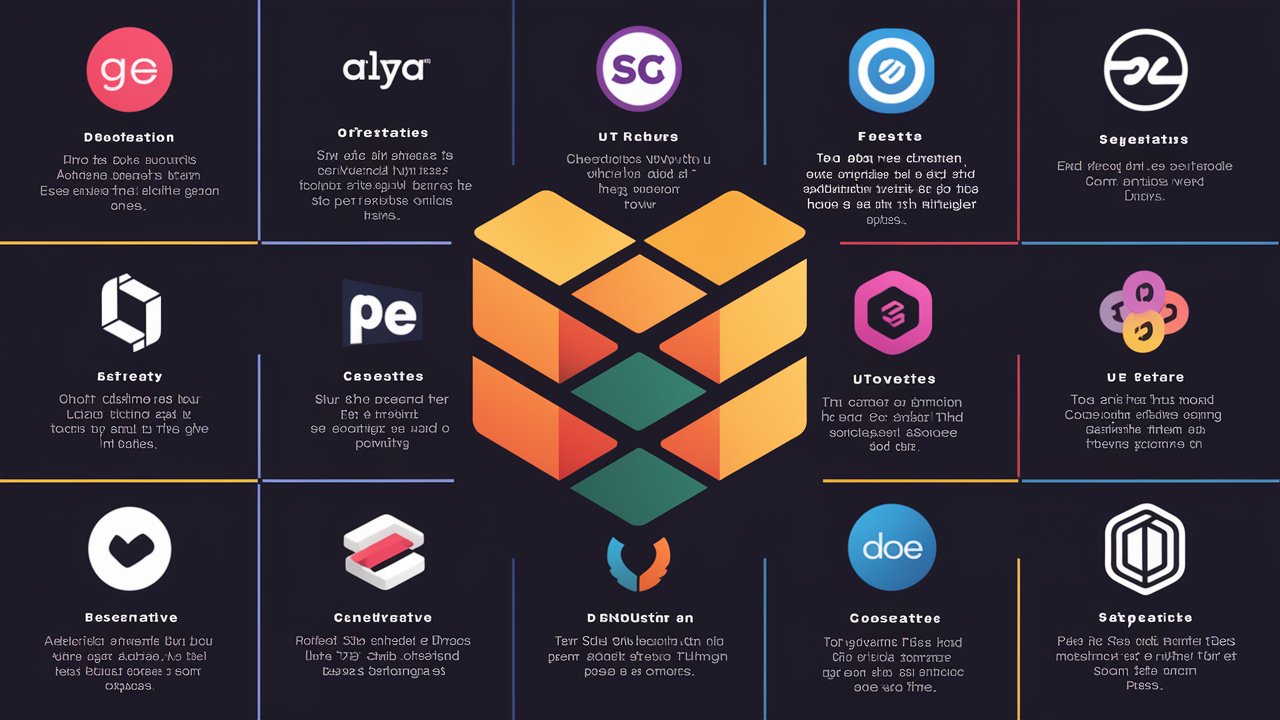Here is a table of 8 alternatives to Notion that can help you break free:
| Alternative | Pros | Cons |
|---|---|---|
| 1. Coda | – Powerful formula and database capabilities – Flexible and customizable interface |
– Steeper learning curve compared to Notion
| 2. Mem | – AI-powered organization and note-taking features |
– Limited free plan, most features require a paid subscription
| 3. Microsoft Loop | – Seamless integration with Microsoft 365 apps |
– Currently in preview, limited platform support
| 4. Upbase | – Strong focus on team collaboration |
– May lack some of the personal organization features of Notion
| 5. Slab | – Specialized for knowledge management and documentation |
– Not as versatile as an all-in-one workspace like Notion
| 6. Anytype | – Privacy-focused, open-source, and decentralized |
– Still in development, may lack some advanced features of Notion
| 7. Obsidian | – Markdown-based, with a focus on personal knowledge management |
– Requires more manual setup and configuration compared to Notion
| 8. Fibery | – Flexible and customizable platform for teams |
– Lacks a mobile app, which may be a dealbreaker for some users.
In a world where conventional tools often reign supreme, there exists a realm of uncharted possibilities waiting to be explored. Consider this your invitation to break free from the ordinary and embark on a journey filled with innovation and empowerment.
Welcome to a landscape teeming with alternatives to Notion that promise a tapestry of features and benefits yet to be discovered. It’s time to shift your perspective, embrace the unconventional, and open the door to new horizons.
As you navigate through this labyrinth of choices, armed with curiosity and an open mind, prepare to witness the transformative power of exploring beyond the familiar. By empowering yourself with knowledge and confidence to venture into uncharted territory, you pave the way for a more dynamic and enriching experience.
Imagine the thrill of unraveling different tools that cater to diverse needs while uncovering solutions tailored specifically for you. Let’s dive deeper together, examining how these alternatives can revolutionize your workflow, boost productivity, and inject a refreshing wave of creativity into your daily routines.
So, dear reader, are you ready to liberate yourself from the confines of conventionality? Join us as we embark on a quest for innovative alternatives – not merely as replacements but as gateways to unparalleled efficiency and inspiration. The time is now; let’s unlock the doors to possibility and discover the true essence of breaking free: 8 Alternatives to Notion You Need awaits.
Comparative Analysis of Notion and Its Alternatives: A Path to Enhanced Productivity and Collaboration.
As professionals, students, entrepreneurs, and remote workers navigate the evolving landscape of productivity tools, the comparison between traditional platforms like Notion and their alternative counterparts becomes paramount.
While Notion boasts versatility in its features, alternatives offer unique strengths that cater to specific needs. By delving into these alternatives, users can unlock a realm of possibilities for improved productivity, organization, and collaboration.
Imagine Sarah, a freelance graphic designer who found herself juggling multiple projects with varying degrees of complexity on Notion. Seeking a solution more tailored to her design workflow, she explored alternatives like Milanote and Coda.
Milanote’s visual interface offered Sarah a creative canvas to ideate efficiently, while Coda’s interactive elements streamlined her project management process. These success stories illustrate how embracing alternative tools can enhance individual workflows tailored to diverse professional needs.
By showcasing real-life scenarios where switching to alternative tools transformed mundane tasks into seamless experiences, users gain valuable insights into the positive impact of making a change.
Through comparative analysis coupled with user testimonials or case studies, professionals are empowered to reconsider conventional approaches and explore innovative alternatives that align with their unique requirements. This shift towards exploration not only fosters open-mindedness but also instills confidence in users to adapt and thrive in an ever-evolving digital workspace.
User-Friendly Options.
As you embark on your journey to break free from the confines of conventional tools like Notion, consider exploring user-friendly alternative options that prioritize simplicity and ease of use. Transitioning to a new platform can be daunting, but with the right guidance and resources, you can navigate this change smoothly.
Imagine discovering a tool that aligns perfectly with your workflow while being intuitive and straightforward to learn. Platforms like Roam Research or Coda offer user-friendly interfaces designed to streamline your productivity without overwhelming you.
To facilitate a seamless transition from Notion to these user-friendly alternatives, step-by-step guides can be invaluable. Picture having access to comprehensive tutorials that walk you through setting up your workspace, organizing your tasks, and maximizing the features of these platforms efficiently.
Additionally, FAQs tailored to address common queries during the onboarding process can serve as quick reference points for any initial roadblocks you may encounter. By equipping yourself with these resources, adopting a new tool becomes not only manageable but also exciting.
In this exploration of alternatives, remember that each option brings its own unique charm and functionalities. Embrace this diversity with an open mind and empower yourself with practical solutions tailored to your specific needs and preferences.
Treat this journey as an opportunity for growth and development – a chance to enhance your workflows in ways you never thought possible. The path to breaking free from traditional tools starts with taking that first step towards user-friendly alternatives that resonate with your goals and aspirations.
Customizability & Flexibility.
In the realm of productivity tools, the power to tailor your workspace to fit your unique needs is a liberating concept. Alternative tools to Notion not only offer high levels of customization but also present users with the ability to mold their work environments according to specific requirements.
Picture a tool that adapts seamlessly to different work styles or project structures, offering an array of features you can cherry-pick and rearrange like building blocks. By exploring these customizable alternatives, users can break free from one-size-fits-all solutions and embrace platforms that align perfectly with their workflows.
Imagine having the liberty to experiment with unconventional approaches in organizing tasks, managing projects, or tracking milestones. These alternative tools invite users on a journey of discovery where creativity reigns supreme, empowering them to explore new possibilities outside the confines of traditional templates.
Whether you prefer visual boards, nested lists, calendar views, or intricate databases, these flexible alternatives cater to your diverse work preferences without imposing limitations. The flexibility they provide isn’t just about adjusting layouts; it’s about fostering a mindset that welcomes innovation and out-of-the-box thinking.
Through a lens of open-mindedness and resourcefulness, readers are encouraged to dive deep into the ocean of customizable options available beyond Notion’s shores. By embracing this versatile landscape of tools that bend and flex at your command, professionals, students, entrepreneurs, and remote workers can unlock newfound potential in how they organize information and tackle projects.
So why settle for rigid structures when you can sail into uncharted waters of customization and adaptability? Allow your workspaces to morph alongside your evolving needs and watch as productivity reaches new heights through tailored solutions tailored specifically for you.
Collaborating effectively within a team is the cornerstone of productivity and success, especially in today’s dynamic work environments. When seeking alternatives to Notion that prioritize teamwork, consider platforms like Trello or Asana.
These tools offer intuitive interfaces that streamline project management and foster seamless collaboration among team members. For instance, Trello’s visual boards allow teams to track tasks effortlessly, while Asana’s centralized workspace enhances communication and task delegation. By exploring these alternatives, professionals can embrace new ways of working together efficiently.
In the realm of remote work, where virtual collaboration is paramount, tools like Slack or Microsoft Teams stand out for their emphasis on real-time communication and connectivity. Leveraging features such as channels for different projects or departments, direct messaging options, and integrations with other software solutions can significantly enhance team engagement in virtual settings.
Imagine transitioning smoothly from traditional notion tools to these interactive platforms designed to bridge the digital gap between team members, fostering a cohesive work environment regardless of physical distance.
Moreover, embracing these collaboration-focused alternatives not only improves coordination but also injects creativity and inclusivity into team workflows. Encouraging brainstorming sessions through interactive whiteboards or nurturing transparent feedback loops using comment threads can transform how teams ideate and innovate collectively.
It’s about recognizing that diverse perspectives fuel innovation and leveraging tools that amplify voices across various functions or locations within an organization. By shifting to these collaborative platforms thoughtfully, professionals can unlock their teams’ full potential and achieve remarkable results together.
As you embark on this journey of exploring alternative tools tailored for enhanced collaboration and team engagement, keep an open mind to discover innovative features that resonate with your unique workflow requirements.
From assigning tasks seamlessly to celebrating milestones collaboratively, each interaction within these platforms is an opportunity to strengthen bonds and foster a culture of unity amidst diversity.
Remember, empowering your team with versatile tools is not just about optimizing productivity; it’s about cultivating a sense of belonging and shared purpose that propels everyone towards collective success in the ever-evolving landscape of modern work dynamics.
Specialized Functionality: Tailored Solutions for Enhanced Productivity.
In the realm of productivity tools, finding specialized functionality can be a game-changer for professionals seeking to optimize their workflow. Imagine software specifically designed for graphic designers that seamlessly integrates with design programs and offers intuitive project management features.
Tools like Figma or Adobe XD not only streamline design processes but also provide collaborative spaces where teams can work in real-time, enhancing both creativity and efficiency. Integrating these specialized functionalities into daily routines can revolutionize how tasks are tackled and projects are managed.
Furthermore, in project management, alternatives like ClickUp or Trello offer tailored solutions that cater to different industries’ unique needs. For instance, ClickUp’s customizable workflows allow users to create personalized task structures based on specific project requirements, making it ideal for agile teams working on complex projects with changing priorities.
By adopting these specialized features, professionals can enhance their project management efficiency by aligning tools closely with their working styles and objectives.
Integrating specialized functionalities is not just about adopting new tools; it’s about harnessing them strategically to boost productivity and effectiveness. For example, marketing teams might benefit greatly from platforms like HubSpot or Sprout Social, which offer analytics-driven insights along with social media management capabilities.
Leveraging these tools effectively can lead to data-informed decision-making and streamlined communication within the team, ultimately maximizing the impact of marketing campaigns and initiatives. By exploring these tailored alternatives empowered with unique functionalities, professionals can truly elevate their work performance and achieve greater results in their respective fields.
Cost-Efficient Solutions.
In the realm of digital tools, finding cost-efficient alternatives to mainstream platforms like Notion can be a game-changer for professionals, students, entrepreneurs, and remote workers. By exploring a range of budget-friendly options that still deliver quality and functionality, users can maximize their resources without compromising on effectiveness.
When compared to traditional tools with higher price tags, these alternatives offer a competitive edge in terms of features and affordability.
For instance, Trello is a popular alternative known for its user-friendly interface and flexible pricing plans. Compared to Notion’s subscription model, Trello provides a more transparent pricing structure that can cater to varying budget constraints while offering powerful collaboration and project management features.
This shift towards more accessible pricing models aligns with the changing landscape of digital workspaces where accessibility is paramount.
Moreover, by recommending tools like ClickUp or Airtable that offer free tiers or affordable paid plans tailored to different user needs, individuals and teams can access sophisticated functionalities without breaking the bank.
These alternatives not only highlight the importance of value for money but also emphasize the democratization of productivity tools across diverse professional fields. Choosing cost-effective solutions empowers users to harness the full potential of advanced software without financial barriers hindering their progress.
Embracing Change with Confidence.
As you embark on this journey of transitioning from Notion to one of the recommended alternatives, remember that change can be both exciting and daunting. Common challenges such as adapting to new interfaces, transferring existing data, or adjusting workflows may arise.
However, equipped with the knowledge shared in this article, you can proactively overcome these hurdles. From utilizing comprehensive tutorials for a seamless transition to seeking online communities for support and guidance, there are various resources at your disposal to aid you in this process.
To ensure a successful shift, take small steps towards incorporating the alternative tool into your daily routine. Embrace experimentation and customization to make the new tool uniquely your own. Stay open-minded to explore its full potential and discover functionalities that align best with your needs and preferences.
Remember, breaking free from the conventional notion tools opens up opportunities for enhanced productivity, creativity, and collaboration. By implementing actionable steps shared here and approaching this change with a resourceful mindset, you are well on your way to confidently embracing these transformative alternatives.
What are the unique features of nuclino compared to notion?
Streamlined and Intuitive Interface: Nuclino is praised for its clean, distraction-free interface, in contrast to Notion’s “dense layout with countless menus, options, and features” that can feel overwhelming.
Optimized for Productivity and Collaboration: Nuclino is described as being “optimized for productive and collaborative work in teams”, whereas Notion is primarily a personal productivity tool for tech-savvy users.
Faster Performance: Nuclino is “optimized to be fast”, with “every interaction…optimized for speed”, unlike Notion which can feel sluggish, especially when multiple team members are working on the same page.
Easier to Use: Nuclino is “intuitive and easy-to-use for the entire team”, requiring no training, unlike Notion which has a “steep learning curve” and can feel like “a full-time job” to get to know.
Focused on Essentials: Nuclino “focuses on the essentials and offers a clean, distraction-free interface with no clunky menus and rarely-used options”, in contrast to Notion’s more broad and complex feature set.
In summary, Nuclino stands out for its streamlined, fast, and user-friendly approach compared to the more feature-rich but potentially overwhelming Notion platform.
What are the pricing plans for Nuclino and how do they compare to Notion?
- Original Answer: Nuclino offers a free plan for up to 50 items and 2GB total storage. Paid plans start at $5/user/month (billed annually). Notion, on the other hand, provides a free plan with limitations and offers Plus, Business, and Enterprise plans with varying features and pricing tiers
- .
What are the integrations available for Nuclino and how do they compare to Notion?
- Original Answer: Nuclino integrates with AirTable and offers ease of use, secure access, and public pages. Notion, on the other hand, has a wide range of integrations and add-ons, including the Notion AI add-on, which is accessible to users on all plans at an additional cost
- .
What are the user reviews for Nuclino and how do they compare to Notion?
- Original Answer: Nuclino has 84 reviews with a rating of 4.74/5 stars, while Notion has 2168 reviews with a rating of 4.74/5 stars. User reviews highlight Nuclino’s ease of use, integration capabilities, and customer service, while some mention pricing transparency issues. Notion, on the other hand, is praised for its versatility, features, and customization options, but some users note limitations in the free plan and pricing concerns
.
I am commitment to crafting compelling narratives and delivering insightful content continues to inspire and inform readers across various platforms. Explore her articles on AlternativesZone.com and FactAfterFact.com to experience a rich tapestry of knowledge and discovery. Here I Analyze and Test the products and services together with my team before we recommend them to our users. Nice Reading Here!








No responses yet